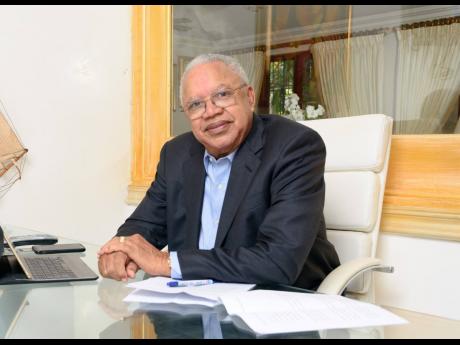Health + Tech | Boosting mental health with teletherapy
Jamaica has long struggled with dealing with mental health issues with high rates of depression, anxiety, psychosis, and substance abuse disorders. Despite the prevalence of mental health conditions, stigma, cultural beliefs, a shortage of mental health professionals, cost and a lack of sufficient investment contribute to low help-seeking behaviour and inadequate access to mental healthcare services. This disparity exacerbates the burden of mental illness on individuals, families, and communities across the nation.
According to the Pan American Health Organization (PAHO), in its 2019 report titled Care for Mental Health Conditions in Jamaica: The Case for Investment, “In Jamaica, the burden of mental illness is considerable and is predicted to cause US$ 2.76 billion in lost economic output from 2015-2030, a higher economic burden than from any single category of non-communicable disease conditions except cardiovascular disease.”
PAHO further states that “mental health is critical to personal well-being, interpersonal relationships, and successful contributions to society. Mental health conditions consequently impose a high burden, not only on individuals, families, and society, but also on economies, as those who suffer from mental disorders are more likely to experience premature death, exit the labour force, miss days of work (absenteeism), or work at a reduced capacity (presenteeism)”.
For these reasons, mental health has been included in the organisation’s 2030 sustainable development agenda.
POLICY DECISIONS NEEDED
There needs to be more high-level policy decisions geared towards decisively dealing with this problem and removing the general sentiment that if an issue is not organic, or if there is no direct physical impact on the body, then it isn’t a “proper” illness. In the meantime, however, we can look to technology to try to bring some improvement to the current situation.
With the growing use of technology across the various spheres of healthcare, mental health can be given a boost with the use of teletherapy to increase access, confidentiality, and help-seeking behaviour. Teletherapy, facilitated through video conferencing, phone calls, or text-based platforms, presents a viable solution to overcome some of the barriers to accessing mental healthcare services in Jamaica. While this is available in the island presently, its use is not pervasive enough, especially in the public health sector.
Teletherapy eliminates geographical barriers, allowing individuals from remote or underserved areas to access mental health services without the need for physical travel. This is particularly beneficial in Jamaica, where rural communities often lack access to mental health professionals and facilities. Teletherapy provides a level of anonymity that may reduce the stigma associated with seeking mental health support. Individuals can receive counselling or therapy from the privacy of their homes, mitigating concerns about judgement or social repercussions.
This can also be a much more cost-effective alternative to traditional in-person therapy, as it eliminates travel expenses and reduces the need for infrastructure investments. Very little is provided for mental healthcare at the individual level, in relation to what it costs for a single therapy session, for example. As far as I am aware, most private insurance plans only allow for a claim if there is a referral and even so, the patient bears the brunt of the cost. Eliminating the need for travel and other associated costs to seek care would help, even in a small way, to make mental healthcare more accessible to individuals from low-income backgrounds or those with and without health insurance.
BRIDGING THE GAP
Another great feature of teletherapy is that it facilitates consistent and regular communication between individuals and mental health professionals, promoting continuity of care. A lot of people facing mental health issues, experience highs and lows and need emergency assistance at times. With teletherapy, they can quickly access this type of assistance to help them get through the more difficult periods. This is also ideal for persons who may have health conditions that affect mobility. For example, those who are managing chronic mental health conditions, who require ongoing support and monitoring, but also face issues with chronic non-communicable diseases and various types of disabilities.
Teletherapy holds immense promise for revolutionising mental healthcare delivery in Jamaica, while we also seek to systematically address the more high-level policy issues required to make a lasting change.
Doug Halsall is the chairman and CEO of Advanced Integrated Systems. Email feedback to doug.halsall@gmail.com and editorial@gleanerjm.com


